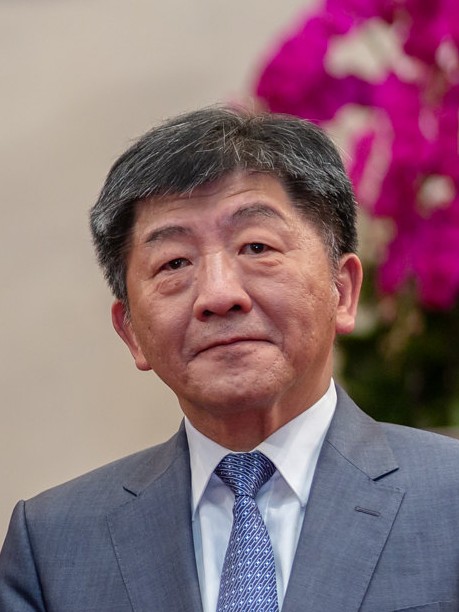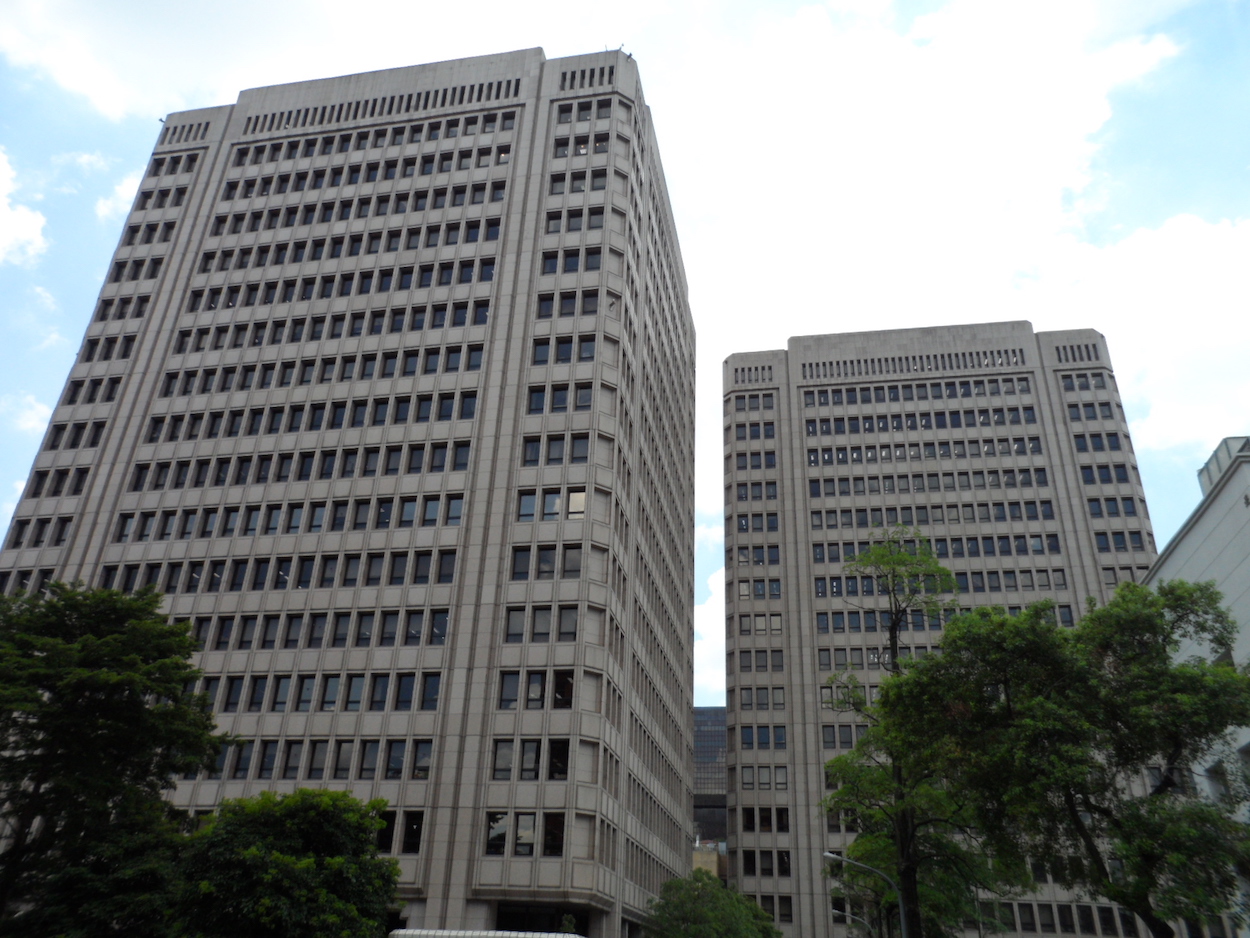by Brian Hioe
語言:
English
Photo Credit: Public Domain
TWENTY-THREE NEW confirmed cases of the COVID-19 coronavirus were announced in Taiwan today. This is the largest jump in the number of COVID-19 cases that has occurred to date and brings the total number of COVID-19 cases in Taiwan to 100. Minister of Health Chen Shih-chung has stated that he expects to see further jumps in the number of COVID-19 cases in Taiwan later this week. The Taiwanese government has also begun retroactively testing individuals that returned from Europe between March 5th and March 14th to investigate previously uncaught transmission chains, which could also lead to an increase in the number of confirmed cases.
Yesterday saw ten more confirmed COVID-19 cases in Taiwan announced by the Central Epidemic Command Center (CECC), in what was then the largest daily jump in the number of confirmed cases. Monday saw eight more confirmed cases and Sunday saw six more confirmed cases. As such, the number of confirmed COVID-19 cases has doubled in Taiwan within the last four days. One notes, however, that only one person has died of COVID-19 to date in Taiwan, meaning that the fatality rate for COVID-19 is exactly 1% in Taiwan at present. This seems to correspond with the projected fatality rate for the virus, based on the data so far.
 Minister of Health and Welfare Chen Shih-chung. Photo credit: CC
Minister of Health and Welfare Chen Shih-chung. Photo credit: CC
Of the cases announced today, 21 contracted COVID-19 while abroad, while two contracted COVID-19 domestically. As such, while the community spread of COVID-19 in Taiwan seems to be limited so far, there are fears that the importation of COVID-19 from abroad could lead to this taking place. While Taiwan has been successful in warding off COVID-19 to date despite its close proximity to China, it is clear that it stands to be heavily affected by the spread of the disease internationally. Countries in which cases were imported from include the Czech Republic, Dubai, Egypt, Italy, Germany, Greece, Japan, the Philippines, Spain, Thailand, and Turkey.
As such, the CECC announced the largest expansion of travel restrictions to date earlier today. Foreign nationals will now be blocked from entering Taiwan altogether, unless they are traveling to Taiwan for business or for diplomatic purposes, or if they have an ARC or APRC. If foreigners travel to Taiwan for such purposes, they will be required to present proof of this, such as a business contract or a diplomatic passport, though the specific details of what counts as proof still remain to be seen.
Likewise, all individuals entering Taiwan will now be required to undergo a fourteen-day self-quarantine, whether these are Taiwanese citizens or foreigners. Prior to this announcement, only individuals traveling from countries with a Level 3 warning were required to undergo a mandatory fourteen-day self-quarantine, while individuals traveling from countries with a Level 2 warning were required to take enhanced precautions and self-health management for fourteen days once home.
Before the expansion of the quarantine, Level 3 travel warnings applied to 99 countries, close to half of the 200 or so countries in the world, including all of Europe and Asia. The US, Canada, Australia, and New Zealand were also increased to a Level 3 warning today, with the Taiwanese government previously making distinctions between US states probably out of a desire to avoid diplomatic fallout with the US if it issued a travel warning for the US as a whole.
Individuals whose travel to such locations is deemed to be “unnecessary” by the government will forfeit the 1,000 NT stipend provided to individuals in quarantine. Symptomatic foreign travelers who arrive from countries that do not have Level 3 travel notices will be required to pay the cost of their quarantine and treatment. 16,000 travelers from Europe, Dubai, Egypt, and Turkey that arrived in Taiwan between March 5th to 14th are currently under quarantine. Fines between 100,000 NT and one million NT will be imposed on individuals that violate home quarantines and fines of 150,000 NT will also be imposed on people that provide false information to authorities on health declarations.
Press conference held this afternoon by Bureau of Consular Affairs Director-General Phoebe Yeh. Film credit: SET News
Likewise, the names of individuals who are confirmed to have contracted COVID-19 will be publicized, though this has led to concerns that this has could lead to the harassment and stigmatization of such individuals—something which has already taken place to date during the outbreak. This adds to concerns regarding the expansion of state power to combat the spread of COVID-19, as also observed in controversy regarding the legal basis for the state restricting travel by teachers, students at the high school level and below, people that work in the Ministry of the Interior or the Ministry of National Defense, and medical personnel, regarding whether this infringes upon fundamental freedoms of movement.
Questions abound about how the Taiwanese government will handle individuals who are currently in Taiwan, but whose visas may soon expire. This will particularly affect tourists and individuals who stay in Taiwan by taking regular visa runs, a sizable portion of white-collar foreign workers in Taiwan.
In a press conference this afternoon, Bureau of Consular Affairs (BOCA) Director-General Phoebe Yeh stated that the government would consider extensions on a case by case basis for individuals who were unable to return home because if their home country is under total lockdown or if there are no flights available due to cancellations, as well as due to illness or force majeure. Fear of contracting COVID-19 would not count as a reason to refuse to return to a country. Yeh stated that travel changes would not affect primarily blue-collar foreign workers, better known as “migrant workers.” Some confusion may result from that the Ministry of Labor (MOL) had previously stated that migrant workers that leave the country at present would not be allowed to reenter for some time, though those with re-entry permits will be allowed to enter if they self-quarantine.
It is notable that Yeh did not specify how long visa extensions would be, except for the passing suggestion that this could be between 15 and 30 days, and that this time limit would be evaluated on a case by case basis. Likewise, when asked by journalists, Yeh declined to provide statistics about the number of foreign workers that would be affected by the changes, referring journalists to instead talk to the National Immigration Agency (NIA).
It is not impossible that the Taiwanese government does not have a concrete picture of how many individuals would be affected by the new changes to regulations, given the difficulties tracking people that live in Taiwan, but are staying in Taiwan on visitor visas or visa-free entry. The Taiwanese government has a demonstrable pattern of attempting to handle immigration issues on a case-by-case basis, as also seen in its handling of Hong Kong asylum seekers that fled to Taiwan in the wake of the Anti-ELAB protests, declining to set up a systematic process for asylum applications but instead evaluating them ad hoc on the basis of individual cases. In general, Taiwan does not have a very good track record on immigration or asylum issues, as complicated by bureaucratic oversight or an unwillingness to address these issues.
Given this, it would not be surprising if changes to the announced policy are made in the face of public backlash. Affected individuals may seek out study visas, work visas, entrepreneurship visas, or other options.
 Bureau of Consular Affairs building in Taipei. Photo credit: Chongkian/WikiCommons/CC
Bureau of Consular Affairs building in Taipei. Photo credit: Chongkian/WikiCommons/CC
That being said, new regulations were rolled out at least partly in response to backlash in the past week from the Taiwanese public against both foreigners and Taiwanese that had traveled abroad, contracted COVID-19, and brought the virus back to Taiwan. In a similar vein, one observed a wave of calls to prioritize the limited resources of the state in treating Taiwanese, rather than foreigners, or calls that foreigners should pay more expensive premiums in Taiwan.
It is also to be anticipated that there could be contestation between various government agencies regarding what steps should be taken to prevent foreign workers living and working in Taiwan from becoming a weak link in disease prevention efforts.
This can be observed regarding controversy regarding how to handle Taiwan’s 50,000 undocumented migrant workers. The CECC initially announced that it would be checking the immigration status of migrant caregivers that visited hospitals with their employers, before backlash ensued that this could cause migrant workers to be afraid of coming forward for treatment for COVID-19 if they feared that this could lead to their deportation. This led to a petition calling for amnesty for migrant workers from civic groups. But when the Ministry of Health and Welfare (MOHW) subsequently announced that it would not check the immigration status of migrant workers, this led to resistance from the MOL, which still hoped to try and deport workers that had overstayed their visas.
It is not impossible that one might see similar contestation between the MOHW, MOL, BOCA, and NIA going forward. This remains to be seen.

